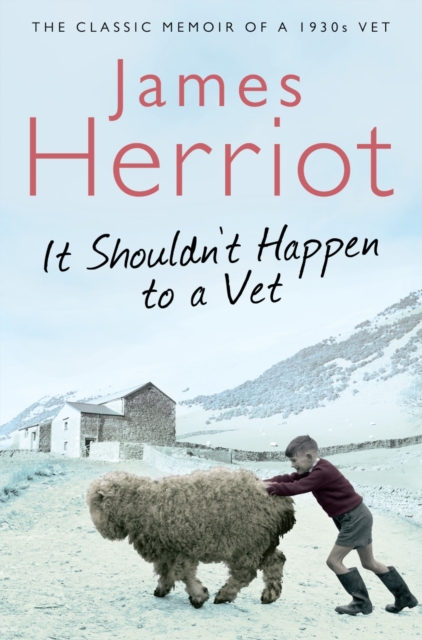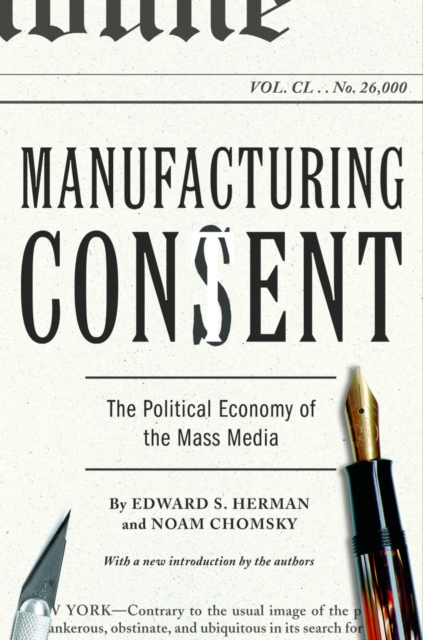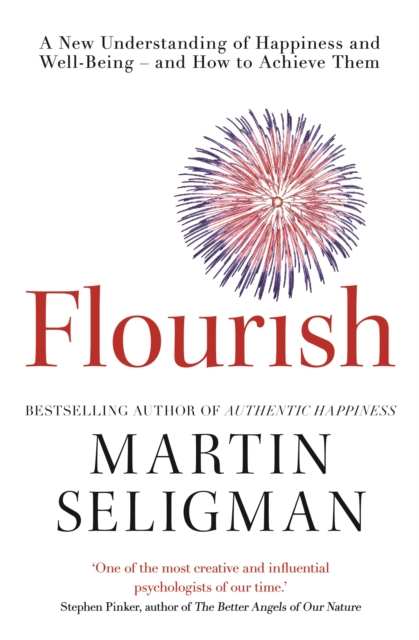You can view , and purchase books, from the Aural Apothecary Library here via Litalist: The Aural Apothecary - Bookcase:
| Choice | Guest's reason for selecting book |
 |
I first came across John Seddon’s work during my MBA studies in 2011. The MBA specialised in Lean Thinking. Seddon, a critic of Lean, asks the reader to start analysing demand instead of treating all demand as work. This was a light-bulb moment for me and introduced me to the concept of failure demand - demand caused by a failure to do something or do something right for the customer. Wearing my newly acquired failure-demand goggles I started to look at healthcare systems and in particular, the use of medicines within those systems, in a different light. This came with the realisation that failure demand and re-work were everywhere. A word of caution for the reader. Once you put the failure-demand goggles on, you can’t take them off. So often, the system isn’t failing – failure is the system. Jamie |
 |
"This was the book that opened my eye to the importance of developing a culture of continuous improvement" Gimmo |
 |
So, like Gimmo I have actually picked an Atul Gwande book because I'm very impressed by him as a person and all the things he's done, not just as a health professional, including working for WHO, and in Bill Clinton’s administration. He reflects on his father's death, in India, and talks about this idea that we must give people a “good death”, and we must resist offering people “futility”. And after 32 years + as a clinician I agree with this ethos, we're becoming a bit obsessed with trying to increase people's length of life, forgetting that it's actually about quality of life. It's very, very powerful because he's so good at writing about what he thinks and because he's so eminent. It's the sort of book that anyone starting off in healthcare, or going off to university to study healthcare subjects, must read and I feel real pleasure when I recommend it for somebody to read. STC |
 |
Up until my late 30s and early 40s, if you’d have asked me , “am I discriminated against because I am a woman”, I would have said I'm not sure. After all, I had been appointed to a very senior job whilst pregnant with my second child. But as I got older, I started to notice that it didn't feel like women and our unique experience was ever at the heart of for example policy making, service commissioning, health care provision or education. As the years ticked on, I saw this more and more. This book was instrumental in me thinking that I wasn't just imagining this, that the world's default human is male and women are seen as sub-species to be added on to tick a box. This book relentlessly, in every chapter, exposes how women are not systematically factored into research and that this has really big implications for the way the world works. If you are a person who does not believe that the world is biased against women then have a look at this book. You might learn something really important for your daughters, your Mum, your Grandma, your wife, your work colleagues and yourself.
|
 |
Amira's episode |
 |
Lawrence's episode |
 |
|
 |
|
 |
I read The Plague, by Camus, when I was 16. It was part of an assignment for my French class in school, and the warn brown book cover did not look all that inviting at the time. Forced to read it, I soon got engrossed in the fast-paced narrative of doom, which centres around a town called Oran, on the Algerian coast. A town faced with a devastating siege: the bubonic plague. It was, as I later discovered, a story that I would never forget, and its narrative and protagonists are still with me in the midst of the Covid-19 pandemic.
|
 |
|
 |
|
 |
|
 |
This book was the catalyst to my awakening about the systemic injustices women face day-to-day. It shines a light on everyday sexism and the societal constructs that perpetuate inequity for women in the workplace, through discussions about issues such as HR policies, representation in senior roles and the gender pay gap. There are anecdotes and statistics to provide insight into the discrimination and bias that are still prevalent today, supported by relatable conversations about sexual harassment, imposter syndrome and stereotyping. I chose this book for two reasons:
Once your eyes are opened, you begin to notice more and more areas that need active solutions. We know that how we treat each other impacts patient care, but progress to make improvements is slow. This extends into health inequalities, understanding the inverse care law, as well as how best to redress the balance in systems that have been created by & for majority groups.
As a woman in the workplace, Lean In highlights the work that we all still need to do to improve equality. The hope was the others would read it and it would ignite a passion to promote more inclusive practices at work. |
 |
Conversations are the key to understanding what really matters to people, how they think and what has influenced them to become the person they are now. It’s becoming rare these days that people write down their feelings and experiences as we don’t write letters like we used to. 80 characters or less is the norm.So reading autobiographies of people we are interested in, even those of our heroes, can give fantastic insight into what makes them the person they are. I could have chosen any number of autobiographies that have given me a huge insight into their journeys. I chose ‘Born to run’ by Bruce Springsteen as I have been a mega fan of his for 40 years. He has sung my life story and I feel I have much in common with him from how he writes his songs and the storytelling inherent in them. But reading his story, in his words, from childhood to adolescent arguments with his father, though struggling to make his mark on the world, to failed relationships, to fatherhood and then coping with his own mental health struggles, echoing those of his father. It made me truly understand how our own. Life journeys define our values. And of course everyone has a story to tell……… |
 |
|
 |
Thinking, fast and slow by Daniel Kahneman (psychologist, economist and behavioural |
 |
I chose this book because it's the one I recommend most to clients who are struggling with direction and purpose and need to trust themselves and their inner wisdom.
It's a 45 minute read and I have read it at least 6 times over the last 4 years and always leave with a little nugget to remind me why I am doing what I am doing.
The finals reason I chose this book was because it was recommended to me by Jamie while having a fellow Coach to Coach converstation the first time we met each other at a conference in Scotland and felt that was significant being a guest on the Aural Apothecary podcast.
|
 |
|
 |
|
 |
|
 |
|
 |
|
 |
|
 |
This book has made many people including me think about oestrogen in a different way. For too long oestrogen has been thought of as a dangerous hormone but this picks the science and allows us to think of oestrogen as a biologically active hormone which has many beneficial effects on women’s health. The evidence is unpicked in a really clear way and this book allows women to learn more about the importance of their hormones. The controversy around HRT started over 20 years ago which came from a large study which was misreported to the media and medical press. This book goes through all the evidence in a very clear and comprehensive way. Avrum also reviews the evidence regarding HRT for women who have had breast cancer. This books encourages readers to think about the benefits of taking HRT and the potential risks of not taking HRT. Every woman should ideally read it! |
 |
We have a beautiful autistic son called Richard and due to his condition always struggled with communication, being non verbal for all of his early life until we found the Son-Rise programme run by the Option Institute in America. We communicated with him via sign language and a PEC (Picture Exchange Communication) system. However visiting America, taking the learnings from the Son-Rise programme and setting them up in our home transformed our lives. Through fun and play we motivated Richard to start to verbalise. Just sounds to begin with, then parts of words and finally words taking some 24 months to achieve. He was 12 when he said “I love you Daddy for the first time”. It has been such an emotional journey and whilst we would love for Richard to be ‘normal’ we celebrate every day the joy he has brought into our lives. For any Aural Apothecary friends and colleagues who have an autistic family member please read my recommendation and discover an opportunity to help your special child. |
 |
|
 |
|
 |
|
 |
My book choice is ‘Wilding’ by the author Isabella Tree – a fantastic case of nominative determinism! It’s a beautiful story of a rewilding in an area of land which had been stripped of life by human behaviour, and where the natural world was struggling to keep a foothold. It describes how, when given a chance, nature flourishes in creative and unexpected ways. It’s so pertinent to the concept of ‘Planetary Health’ I would love all health professionals to read it. We need to understand that human health absolutely depends on the world in which we live; clean air, sparkling water and ecosystems teaming with life that produce all the things which need to sustain us. It’s so clear to me as a pharmacist that if I just focus on ‘popping pills’ I’d be dwelling on the wrong end of healthcare. So often healthcare focuses on the very last step in the process when really, we need to go ‘downstream’ and stop the sickness occurring in the first place. If we reorientate healthcare around Planetary Health we could change the world. |
 |
|
 |
|
 |
|
 |
|
 |
|
 |
I chose Stuart a life backwards because it is funny, kind, informative and devastating. It made me look in a new way at some of our most ‘difficult’ patients: Stuart is violent, abusive, cheerful, belligerent and damaged. Masters tells Stuart’s story- that of a life that hovers between hanging in there at the bottom of our society, and complete destitution, and he sheds some pale light on the events that might bring anyone to that point. Also if you don’t want to read it, it comes as a great short film with (very young) Benedict Cumberbatch and Tom Hardy. |
 |
|
 |
Martin Seligman is one of the most influential American psychologists of our time and founder of the ‘Positive Psychology’ movement . His PERMA model of wellbeing has become the cornerstone of science in this field, where the 5 pillars of wellbeing are described as P = Positive emotion, E = Engagement, R= Relationships, M= Meaning and A = Accomplishment (PERMA). The creative approach and rigorous research applied to human flourishing is described in this book. I was lucky enough to meet Martin Seligman (and shook his hand!) at a Psychology conference in Brighton in 2016. His presentation inspired me to explore opportunities for supporting community wellbeing in a pharmacy setting. This led to a successful PhD funding application to design a positive psychology intervention delivered in a community pharmacy in Neath, South Wales, UK. You can read more about this research in our published paper Development of a Positive Psychology Well-Being Intervention in a Community Pharmacy Setting - PMC (nih.gov). |
 |
|
 |
|
 |
|
 |
|
 |
In the tipping point Malcolm describes how small things can influence the spread of ideas and information that essentially make things tip. He describes the power of networks and the types of individuals you need on your team to make your ideas work and sustain. Not only has the book helped me think differently about how I approach problems and who I need with me, it was also a very entertaining read. Gladwell introduces three key people we all need in our lives: Connectors, Mavens, and Salesman – who are you? |
 |
|
 |
|
 |
|
 |
|
 |
|
 |
I was encouraged to read it by my brother. He's much younger man than me, retired early and he enjoys cycling. And with the fact that my mitral valve leaks like a bucket with no bottom, the notion that I can still ride for two or three hours on the bike and do 30 or 40 miles does perplex my cardiologist, and my brother was fascinated by all that, so he recommended that I read it. It is about high performance cycling, but also encourages us, as we move on in life, to keep going and the confidence with which we should be having a go at things that are quite physically demanding and how healthy that is. |
 |
It's about the story of the authors' great-uncle Boris Pasternak who wrote Dr. Zhivago . And the woman that typed this up for him was a woman called Olga. It's about their love story and it's so incredibly powerful. She went to the Gulag twice rather than give him up to the KGB because Dr Zhivago was not published in Russia until it had been published everywhere else in the world. And it taught me the power of determination. If you are determined to do something, if you are determined to get a book out, if you are determined to go against the might of the KGB, what an incredible woman and he being a typical man, excuse me, even when his own wife died, because she was his mistress, he didn't marry her. And so after he died, she had a really bad time with the KGB and was sent away again, and all he needed to do was marry her to protect her, and he didn't do that in his dying years. But I have read that book three, four times and every single time I find something else in it that just reminds me of the power of the human spirit |
 |
It's all the Lady Bird books but I'll pick one, Henry VIII. I grew up in a very, very poor family. And we had no books in the house at all, apart from Lady Bird books. And, it was a council house in the, Midlands and, and you know what? You could pick up and you could read about the six wives of Henry VIII. Then you could pick up another one and learn about calligraphy, and then you could pick up another one and learn about Polynesia, honestly, I mean, just, they were incredible and in fact, I've got a collection of them now, in my library Absolutely brilliant reads. I commend them. I commend them to this podcast. |
 |
Edith Eger survived Auschwitz and she's now in her nineties and she's a psychologist. She tells her story, but then she tells other people's stories through her practice. And all of that is around courage and resilience and having that emotional resilience but also acknowledging that what one person might be very worried about, might seem quite simple and easy to you, but it's that person's worry and you've got to work with them. It is a really powerful book |
 |
|
 |
|
|
|
|
|
|
|
|
|
|
|
|
|
|
|
|
|
|
|
 |
|
 |
|
 |
|
 |
|
 |
|
 |
|
 |
|
 |
|
 |
|
 |
|
 |
|
 |
|
 |
|
 |
|
 |
|
 |
|
 |
|
 |






